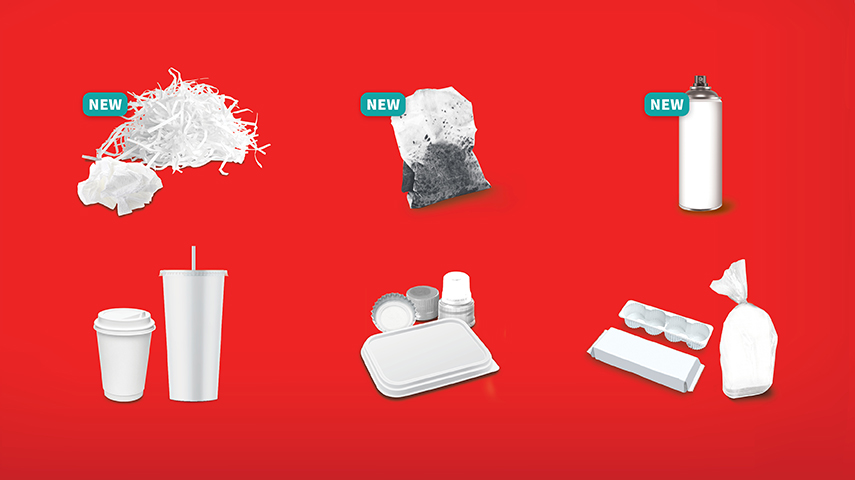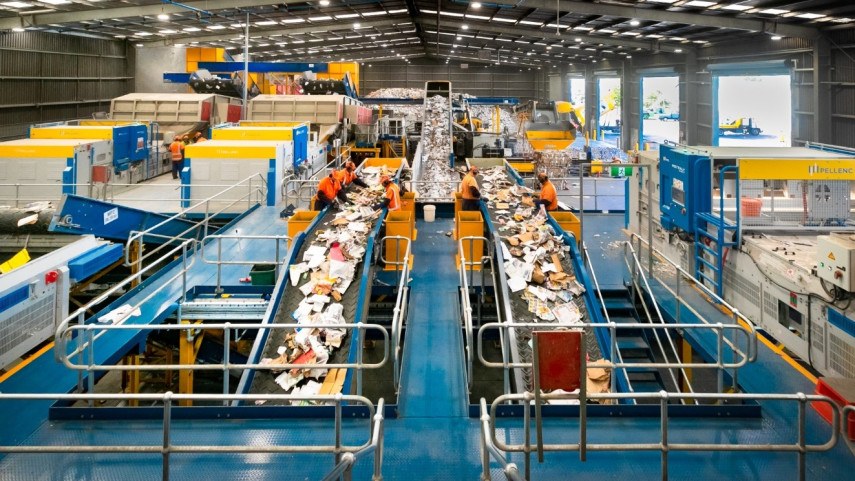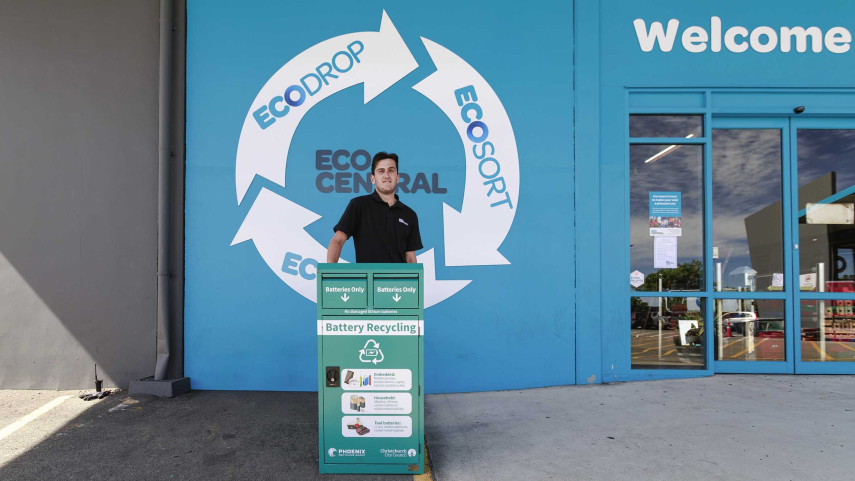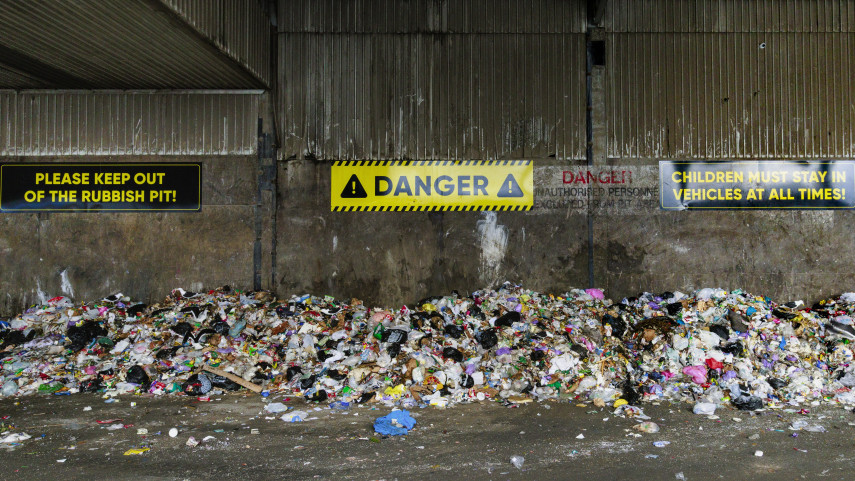The red rubbish bin is collected every two weeks. This is for all items, including fireplace ash (cooled for 5 days first) that can’t go in the green or yellow bin, except hazardous items and chemicals which can be dropped for free at the EcoDrop.

Get the Christchurch Bins mobile app

These items must go in the red bin:
- aerosol cans
- ash, timber and sawdust – let ash cool for at least five days before disposing of it in the red bin
- compostable and biodegradable bags and packaging
- containers over 4 litres, such as large water and oil bottles and bulk cleaning containers
- fabric, including bags, textiles and clothing
- food-soiled paper and cardboard
- lids, including small lids and large flat lids
- liquid cartons, such as juice cartons, almond and soy milk
- soft plastics
- takeaway coffee and drink cups
- takeaway containers, such as burger boxes, fast food and takeaway boxes
- tea bags
Kerbside collection has been standardised across New Zealand. Find out more on the Ministry for the Environment website.(external link)
These items do not go in the red bin:
- batteries, including household, vehicle and embedded batteries
- dead animals or pets
- explosives and flammable material or gas bottles
- hot material such as ashes
- liquid chemicals, household cleaners or dry chemicals
- medical needles or sharp objects capable of puncturing the bin
- paints or solvents
You can take most of these items to your local EcoDrop or a transfer station for disposal.
Want to do more?
Helpful tips to reduce your waste.
All soft plastics must go in your red bin, that’s any plastic you can scrunch in your hand.
Common soft plastic items include:
- plastic shopping bags
- bread, pasta, and rice bags
- frozen food bags
- courier bags
- bubble wrap and plastic furniture wrapping
- plastic wrappers for confectionery, muesli bars, and biscuits
- cereal liners
- pallet fire bags
If you're unsure, you can search for specific items on our Wheelie Bins app.
Why you can't put soft plastic in the yellow bin
Soft plastics can’t be recycled in the yellow bin and should only go in the red bin or the soft plastic takeback bins(external link).
When soft plastic gets mixed up with recycling it can mean the whole truckload ends up in landfill. Here’s why:
- Our processing plant can only handle clean and topless plastic bottles and containers.
- Soft plastics can get caught in the sorting machine, causing breakdowns.
- When they get caught up with accepted recyclable products, it can stop them from being sold and recycled.
Soft plastic recycling scheme
The soft plastic takeback scheme returned to Christchurch on 15 February 2021.
For information and locations, please visit the Soft Plastic Recycling website(external link).
How to safely dispose of hot ashes
- Let ash cool for at least five days in a metal bucket or container before disposing of it in the red bin, otherwise, it may cause a fire.
- Place timber offcuts, sawdust and cold bagged ash only in your red rubbish bin when disposing of it.
- Do not burn treated timber offcuts. When we burn treated timber, it releases large amounts of toxic heavy metals into the air we breathe, and the ash left behind contains 100 times the concentration of toxic heavy metals as the original piece of wood.
Why ash can't go in the green organics bin
- It can raise the arsenic levels in the compost which means it might end up going to landfill.
- As little as a third of an ice cream container of ash can be enough to contaminate the contents of one whole green bin collection truckload of organics waste.
- If ash gets in there, we can’t get it out, and contaminated compost can’t be added to soil to help grow our food and gardens.
Find a trusted firewood merchant
For a list of firewood suppliers which have been reviewed and accredited by Environment Canterbury please visit Warmer Cheaper(external link)(external link).
Here's how to dispose of fireworks safely:
- Completely submerge fireworks in a bucket of water. Allow to soak overnight.
- Double wrap soaked fireworks in plastic wrap or plastic bags so they do not dry out.
- Dispose of wrapped bags in the red bin.
Related news

Gold stars for bin good
Christchurch residents are earning top marks for their best year yet at recycling.
18 Dec 2025
New fire-resistant units for recycling household batteries safely
Christchurch residents have new options for safely disposing of household batteries with upgraded, fire resistant collection units.
16 Dec 2025
Prioritise safety at EcoDrop transfer stations
The Council’s Resource Recovery team and site operator EcoCentral are urging residents to prioritise safety at the EcoDrop transfer stations to protect themselves, their families and staff.
26 Aug 2025